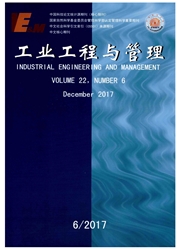

 中文摘要:
中文摘要:
考虑多台MRI设备间等级、服务时间和病人类型差异的前提下,分配检查任务固定服务时间,设计队列池排队方式,寻求合理时间槽长度。仿真验证其有效性。依据设备型号与服务时间差异分配检查任务,可在控制病人等待时间的基础上,增加检查病人数量、提升设备利用率;队列池排队方式的高效性与时间槽长度和服务时间有关;合理设置时间槽长度方式优于预留时间槽的方式。
 英文摘要:
英文摘要:
The process of MRI management is pretty complex, which needs to deal with various examinations and different patients' priorities especially there are heterogeneous MRI facilities. Rules are designed to assign examination tasks among heterogeneous facilities, schedule patients by considering the priority of patients and adjust the length of time slot based on service time. Rules are verified by simulation. Results shows that facility running with a "standard" duration leads to better performance, which is similar with that in industry. Meanwhile, queue pooling is an effective method as long as the length of time slots is in a reasonable scope,which is influenced by service time. Finally, setting the length of time slots reasonably performs better than reserving time slots for emergency patients.
 同期刊论文项目
同期刊论文项目
 同项目期刊论文
同项目期刊论文
 期刊信息
期刊信息
